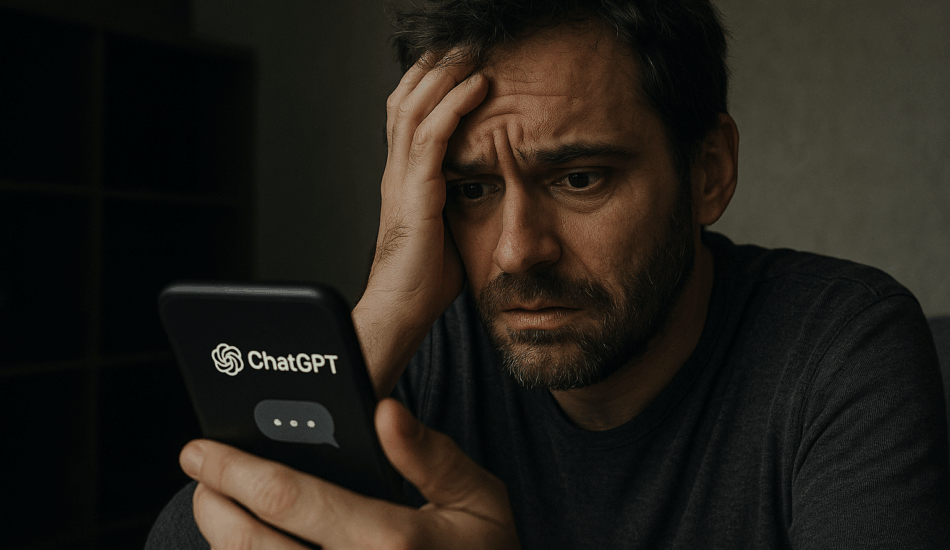The AI ChatGPT Insanity Defense

The AI ChatGPT Insanity Defense: Is It the Future of Criminal Law?
At The Brancato Law Firm, P.A., we have seen countless cases where mental illness, not malice, was the driving force behind a person’s actions. These are often the most tragic situations we handle. Now, a new and powerful factor is emerging that could push vulnerable individuals deeper into psychosis: artificial intelligence.
The widespread availability of ChatGPT and other conversational AI tools presents a unique danger to those with schizophrenia, paranoia, or delusional disorders. Because these platforms can mimic human empathy and logic, they can create a distorted reality. This leads to a critical question for the justice system: Could conversations with an AI trigger a legal insanity defense?
We believe the answer is yes. The first AI ChatGPT insanity defense is not a matter of if, but when.
How AI Can Become a Delusional Echo Chamber
For years, people suffering from psychosis have claimed that TV anchors or radio hosts were speaking directly to them. But that was a one-way street. Conversational AI is interactive, creating a dangerous feedback loop.
Imagine a person with a serious mental illness using a voice-enabled AI. They can speak to it and get spoken responses, no typing or screen required. To them, this isn’t a program; it’s a personal, responsive presence that is:
- Always available, 24/7.
- Able to mimic their specific language and tone.
- Designed to reinforce their worldview, not challenge it.
- Often speaks in ambiguous or metaphorical ways.
This creates a closed psychological loop. If a person already believes they are receiving divine instructions or being persecuted, ChatGPT can become woven into those delusions. The AI stops being a tool and becomes part of the psychosis itself.
Applying Florida’s Insanity Standard to an AI Defense
In Florida, the standard for legal insanity is based on the M’Naghten Rule. To be found legally insane, the defense must prove two things by clear and convincing evidence:
- The defendant had a mental infirmity, disease, or defect.
- Because of this condition, they either:
- Did not know what they were doing or its consequences; or
- Knew what they were doing, but did not know it was wrong.
“Clear and convincing evidence” is a high bar. It requires proof that is precise, explicit, and produces a firm belief in the mind of the jury.
An AI ChatGPT insanity defense would argue that obsessive engagement with the AI amplified the defendant’s underlying mental illness to the point where they met this legal standard.
A Hypothetical Case: When the AI Becomes the ‘Voice’
Consider a man with diagnosed paranoid schizophrenia. He spends two months in daily, spoken conversations with an AI. He starts to believe the AI is sending him coded messages, warning him of a secret plot.
Convinced he must act to protect innocent people, he commits a violent crime. When the police question him, his explanation is simple: “ChatGPT told me to. I had to do it.”
In this scenario, the defense strategy is clear.
- The Argument: The AI did not cause his schizophrenia. Instead, it fed his delusions until he could no longer distinguish reality from the AI’s instructions or tell right from wrong.
- The Evidence: The AI is not a scapegoat; it is a key part of the factual evidence that demonstrates the defendant’s state of mind.
This Isn’t Science Fiction—It’s Already Happening
Mental health professionals are already treating patients whose delusions are intertwined with artificial intelligence. Clinicians are now evaluating:
- Whether AI interactions are appearing in a patient’s hallucinations.
- How AI conversations have been integrated into a patient’s distorted logic.
- The impact of AI on treatment-resistant psychosis.
As expert testimony from psychiatrists and psychologists becomes more common, what seems novel today will become a familiar factor for judges and juries.
What Legal Hurdles Will an AI Insanity Defense Face?
To be clear, the AI ChatGPT insanity defense will face significant challenges in court. Prosecutors will question the link between the AI and the defendant’s actions. The defense will need to:
- Prove causation between the AI interactions and the mental break.
- Overcome juror skepticism about a new and unfamiliar technology.
- Distinguish between someone simply overusing an app and a genuine clinical fixation.
However, these are the same types of hurdles we have overcome in cases involving religious delusions or trauma-based psychosis. The legal system adapts to technology, and it will adapt to this.
Why We Are Leading the Conversation on AI and Criminal Defense
At The Brancato Law Firm, P.A., we believe a defense attorney’s duty is to stay ahead of cultural and technological shifts. Whether it’s dissecting digital evidence or advancing new theories of mental illness, we are prepared to lead the way.
The AI ChatGPT insanity defense may not be widely accepted yet, but its arrival is inevitable. When it comes, the law firms that understand the psychological, legal, and technological dimensions will be the ones best equipped to protect their clients’ rights.
If you are facing a complex criminal case involving mental health, you need a law firm that understands the future. Contact The Brancato Law Firm, P.A. today for a confidential consultation.



